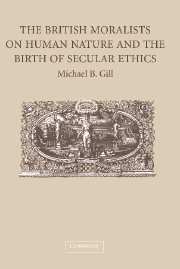Introduction
Published online by Cambridge University Press: 29 July 2009
Summary
Are human beings naturally good or evil? Are we naturally drawn to virtue or to vice? Is it natural for us to do the right thing, or must we resist something in our nature in order to do what is right? Call this the Human Nature Question.
Most of us have asked the Human Nature Question at one time or another. Sometimes it's other people's behavior that prompts us to ask it. Sometimes it's our own.
We may ask the Question when we hear of monstrous acts – of torture, genocide, slaughter. How could people do such things to each other? Is such behavior rooted in something natural to human beings, or is it a perversion of what we naturally are? We may ask the Question when we hear of acts of great generosity and self-sacrifice. Are people who do such things shining examples of the basic goodness of human beings, or can their acts be explained by factors less flattering to humanity? We may ask the Question when we scrutinize our own relatively normal conduct and motivation. What leads us to act in the ways we do? Is it something we should be proud of or something that is not at all to our credit?
Our answer to the Question will greatly influence our view of ourselves and others, and it can play a leading role in our conception of morality, of what it means to live as we ought.
- Type
- Chapter
- Information
- Publisher: Cambridge University PressPrint publication year: 2006



